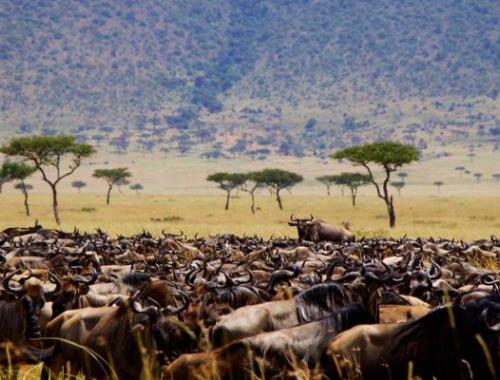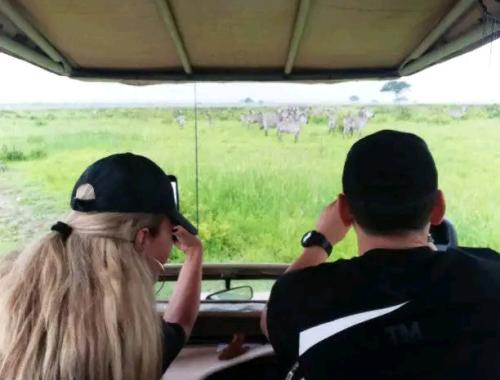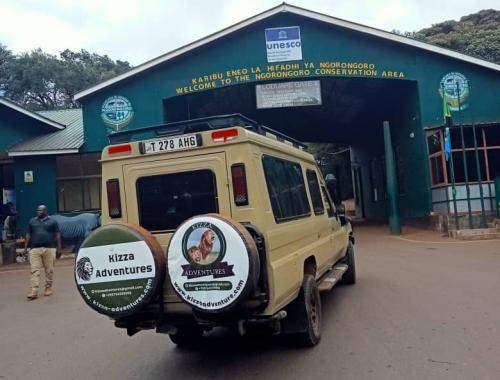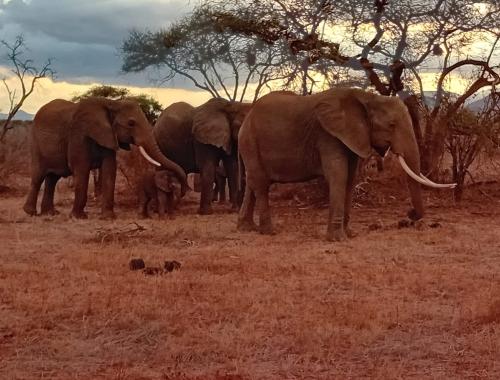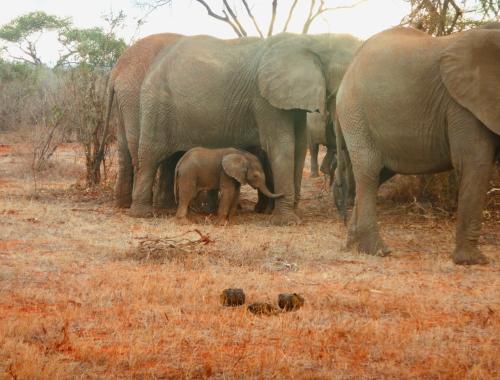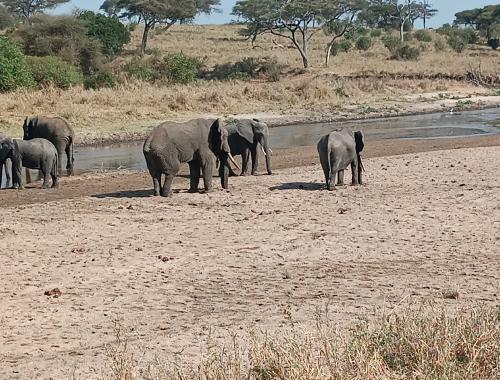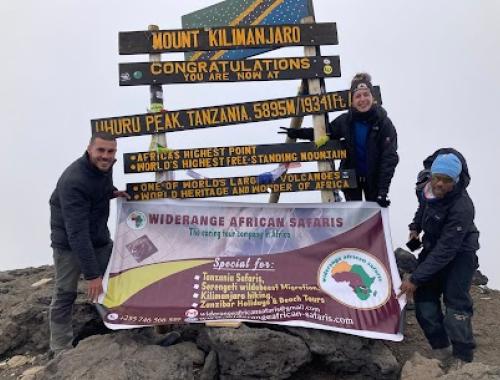Camping Safari
A Camping Safari is a type of safari where you stay in tents or other temporary accommodations while exploring national parks and wildlife reserves. It’s a chance to live like a real explorer, waking up to the sounds of nature and enjoying the sights of wildlife right from your tent!
Why Choose a Camping Safari?
- Closer to Nature: Camping safaris bring you closer to nature than staying in a lodge or hotel. You’ll hear wildlife sounds, like lions or hyenas, at night, and might even see animals near your camp.
- Affordable Option: Camping is often cheaper than staying in lodges or hotels, making it a great option for budget travelers or those who want to experience the wild without spending too much money.
- Adventure and Freedom: Camping safaris offer more freedom and adventure than other types of safaris. You can explore more remote areas and spend time in the bush, away from the crowds.
- Great for Nature Lovers: If you love nature and don’t mind a bit of roughing it, camping safaris allow you to immerse yourself in the wilderness, experience breathtaking sunrises and sunsets, and live the safari experience to the fullest.
What to Expect on a Camping Safari
1. Tents and Campsites
- Your Sleeping Arrangements: On a camping safari, you’ll sleep in a tent. These can range from basic one-person tents to larger, more comfortable tents with beds, pillows, and sometimes even small bathrooms. The campsites are typically located inside or near national parks and reserves, so you’ll be close to nature.
- Setting Up Camp: Some camping safaris will have everything set up for you when you arrive, while others may require you to help set up your tent and campfire. If you're on a mobile camping safari, the camp will be moved each day or every few days, so you get to see new areas.
- Basic Facilities: Depending on the safari, the campsites can range from basic (with only the essentials) to more comfortable ones with showers, toilets, and running water. Some safari companies provide eco-friendly campsites that use solar power.
2. Meals and Food
- Bush Meals: Meals are often simple and hearty. You’ll have a chance to enjoy a "bush breakfast" or lunch—this could be something like a packed lunch during a game drive or freshly cooked food at the campsite, such as grilled meats, salads, and stews. In some camps, food is prepared on an open fire or portable stoves.
- Campfire Dining: Many camping safaris include a dinner around the campfire. It’s a fun, authentic way to eat in the wilderness, while chatting with your guide or fellow travelers and looking at the stars above.
- Drink and Snacks: Most camping safaris will provide drinks (including water, juices, and sometimes beer or wine), along with snacks like fruit or nuts during the day. It's always good to stay hydrated, especially in the heat of the African sun.
3. Daily Activities
- Game Drives: The main activity during your camping safari will be game drives, where you explore the park in a 4x4 vehicle to see animals like lions, elephants, giraffes, and more. You’ll usually go on morning and afternoon game drives when animals are most active.
- Walking Safaris: In some places, you might go on a walking safari with a guide. This is a unique experience where you walk through the bush, learning about the environment, plant life, and small creatures. It’s a safe and educational way to get even closer to nature.
- Bird Watching: Many camping safaris are also great for bird watching. You can spot different species of birds early in the morning or while driving through the park.
- Relaxing Time: When you’re not on game drives or walks, you’ll have some free time to relax around the camp, take photos, or just enjoy the environment. It’s the perfect opportunity to appreciate the peaceful surroundings and maybe catch sight of animals near your camp.
4. Safety and Comfort
- Wildlife Nearby: One of the exciting things about a camping safari is being close to wildlife. While most animals are active at night or during game drives, you might hear them from your tent, like lions roaring or elephants trumpeting. This adds to the authentic experience but also requires you to follow safety instructions from your guide.
- Guided Safaris: You’ll always be accompanied by an experienced guide or ranger who knows the park and its wildlife well. They’ll help keep you safe, explain what you're seeing, and provide information about the animals and the ecosystem.
- Comfort: Camping safaris can be basic, but you’ll still be comfortable in your tent. Some safari companies provide comfy bedding, pillows, and even portable toilets or showers if needed. However, you should be prepared for some rougher conditions compared to staying in a lodge or hotel.
- Portable Toilets and Showers: In some camps, there will be shared facilities, while others provide more private options. On mobile camping safaris, you might use "bush" toilets or showers, which are more basic but still functional.
5. Group Dynamics
- Family and Group Travel: Camping safaris are great for families, groups of friends, or even solo travelers looking to bond with others. You'll often share your camp with other safari-goers, which creates a sense of camaraderie. It’s a chance to meet like-minded people, share stories, and make lasting memories.
- Teamwork: Camping can require a bit of teamwork, especially when it comes to setting up the camp or organizing meals. This adds to the adventure and can make the experience more memorable.
6. What to Pack
- Essential Gear: You’ll need to pack light but smart. Essentials include:
- Clothing: Comfortable, lightweight clothes, neutral colors (like khaki) to blend in with the surroundings, and warm clothes for the cooler evenings and mornings.
- Footwear: Comfortable walking shoes or boots for walking safaris and long drives.
- Sunscreen and Hat: Protect yourself from the sun, as you'll be outdoors a lot.
- Insect Repellent: Essential to protect yourself from mosquitoes and other insects.
- Camera and Binoculars: To capture the amazing wildlife and scenery.
- Personal Items: Don’t forget your toiletries, a flashlight, and a first aid kit. You might also want to bring a journal to document your experience.
7. Nature and Serenity
- Peaceful Environment: Camping safaris offer a serene, peaceful experience that lodges often can’t provide. There are no distractions from modern life, so you can enjoy the sounds of the wild and disconnect from technology. The tranquility of being surrounded by nature is one of the highlights of camping safaris.
- Incredible Views: Whether it’s watching the sunrise over the savannah or gazing at the stars at night, camping gives you some of the best views of nature. Your tent will often be positioned in a beautiful spot, offering amazing views of the surrounding landscape and wildlife.
8. Environmental Impact
- Eco-Friendly Approach: Many camping safaris use eco-friendly practices, such as using solar energy, minimizing waste, and ensuring that the impact on the environment is kept to a minimum. Staying in tents instead of large hotels or lodges reduces the carbon footprint and is a more sustainable way to experience the African wilderness.
Benefits of a Camping Safari
- Affordable: Camping safaris are often less expensive than staying in luxury lodges, making it more affordable for travelers on a budget.
- Authentic Experience: Sleeping under the stars and being so close to nature gives you a unique, authentic safari experience you won’t find in a hotel.
- Closer to Wildlife: Camping safaris allow you to immerse yourself in nature. You may be able to hear the sounds of lions roaring or hyenas laughing at night!
Safety During a Camping Safari
Going on a Camping Safari is an exciting adventure, but it’s important to stay safe while enjoying the experience. Here’s a simple guide on how to stay safe during your safari-:
1. Follow the Guide's Instructions
- Listen Carefully: Your guide is experienced and knows how to keep you safe. Always follow their instructions when you're at camp or out on a game drive. They’ll tell you what to do in different situations, like when to stay in the vehicle or when it's safe to walk.
- Ask Questions: If you're unsure about anything, don’t hesitate to ask the guide. They’re there to help you have a safe and enjoyable trip.
2. Stay Inside the Vehicle
- In the Park: When you're on a game drive, always stay inside the vehicle. Wildlife, especially predators like lions and leopards, can be dangerous, even if they look calm or far away.
- Keep Windows Closed: Unless the guide tells you it’s safe, keep the vehicle windows closed. Animals can sometimes approach the vehicle, and it’s best to keep a safe distance.
3. Be Cautious Around the Camp
- Wildlife at Night: Many animals are active at night. Don’t walk around the camp after dark unless you’re with a guide. You might hear animals like lions, hyenas, or elephants nearby, but they could be dangerous if they feel threatened.
- Secure Your Camp: Keep food and trash away from your tent to avoid attracting animals like hyenas or monkeys. Food should be stored in a safe place, like a vehicle or a special storage area provided by your guide.
4. Respect the Animals
- Keep Your Distance: Always respect the animals' space. Never approach or try to touch wildlife, no matter how friendly they may look. Animals can be unpredictable, and getting too close can be dangerous.
- Don’t Feed the Animals: Feeding wildlife can make them dependent on humans for food, which can change their natural behavior. It can also bring unwanted animals closer to your camp.
5. Stay Calm in Case of an Emergency
- If You Encounter Wildlife: If you do encounter wildlife outside the vehicle or camp, stay calm. The guide will know what to do, but it’s important to remain quiet and still. Don’t make sudden movements or run.
- Follow the Guide’s Lead: If the guide tells you to move quickly or get back in the vehicle, do it without hesitation. They will know the safest course of action.
On a Camping Safari, you’ll have a unique chance to live close to nature, explore the wild, and engage in exciting activities like game drives and walking safaris. While you might be in basic, temporary accommodations, the adventure and immersive experience make it one of the most memorable ways to see beautiful national parks and wildlife. You’ll get to witness nature firsthand and enjoy breathtaking views, all while being in the heart of Africa’s wilderness.

